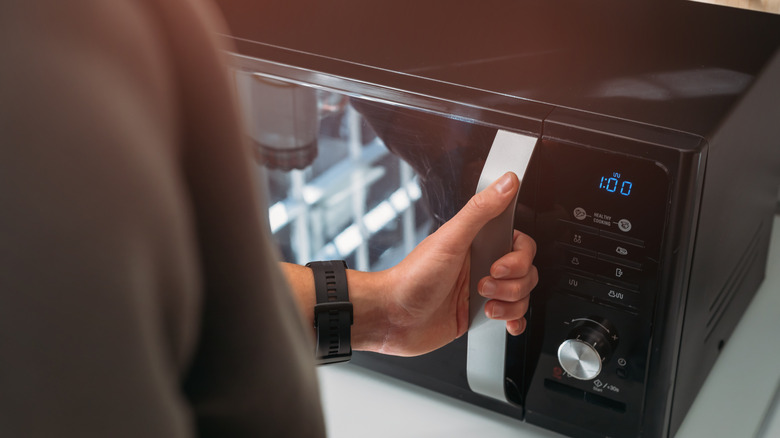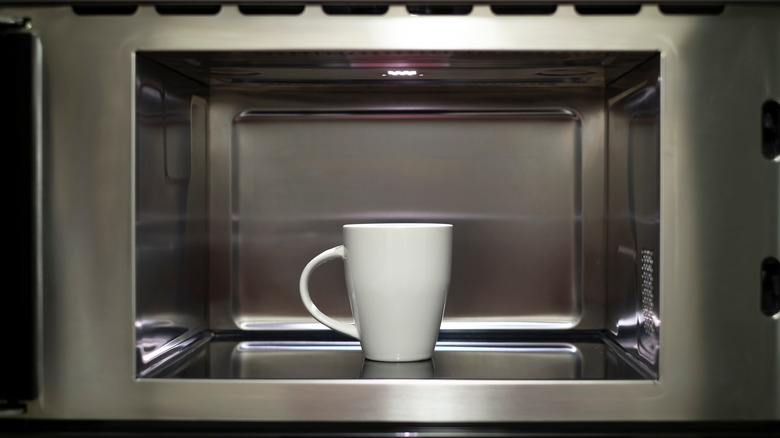Should You Actually Avoid Standing In Front Of A Running Microwave?
We've all heard the sage advice, "Don't stand in front of the microwave." For the most part, this is little more than a modern-day wives' tale. The vast majority of microwaves are safe enough to stand nearby and not worry too much. But are there exceptions to that rule? Could there be a dangerous microwave mistake we're still making? The answer is yes. It turns out that it's entirely possible for microwaves to leak radiation, under specific circumstances.
If you find yourself in possession of a faulty machine, standing close by could mean exposure to leaked electromagnetic radiation. These waves can cause serious burns and long-term health complications. In short, fully functioning microwaves are technically fine, but any damaged product poses a risk of exposure. Even so, the U.S. Food and Drug Administration (FDA) recommends not standing in front of microwaves during operation, just in case.
It sounds simple enough, doesn't it? The issue lies a little deeper, though. These leakages are impossible to spot with the naked eye. So, while there may be warning signs like broken doors or seals, following the FDA's recommendation and keeping one's distance is the safer bet. One way to ensure that your microwave isn't leaking is to invest in a radiation detector. Otherwise, be sure to pay that old wives' tale some mind. After all, a little caution never hurts anyone.
How do microwaves work?
Microwaves are fascinating. A turn of the dial and a satisfying ping, and your piping hot food is ready to enjoy. Of course, there's a method behind the magic. Understanding how microwaves work can help decipher safe usage. These appliances all operate around a magnetron, a vacuum tube that releases a form of electromagnetic wave called, you guessed it, microwaves. With a non-leaking oven, this radiation bounces off the metal, reflecting onto food to impart thermal energy.
A quick blast to reheat food isn't the only thing microwaves are used for; they are useful for cooking thousands of dishes from scratch as well. In fact, their versatility is a big reason why David Chang loves microwave cooking. So, what do microwave power levels actually mean? Essentially, microwaves allow you to control the radiation exposure and subsequent intensity of the cooking process. High might be fantastic for boiling, while medium-high is optimal for baking, and low works wonders for slow cooking.
To be clear, there's no need to be concerned about your food turning radioactive; microwaves are non-ionizing. This means that the radiation has too little energy to break apart atoms and leave stray ions that pose a risk of cancer. While other waves on the electromagnetic spectrum (looking at you, gamma rays) can alter DNA with their powerful impact, microwaves are meek and mild by comparison. It's certainly a clever invention.

